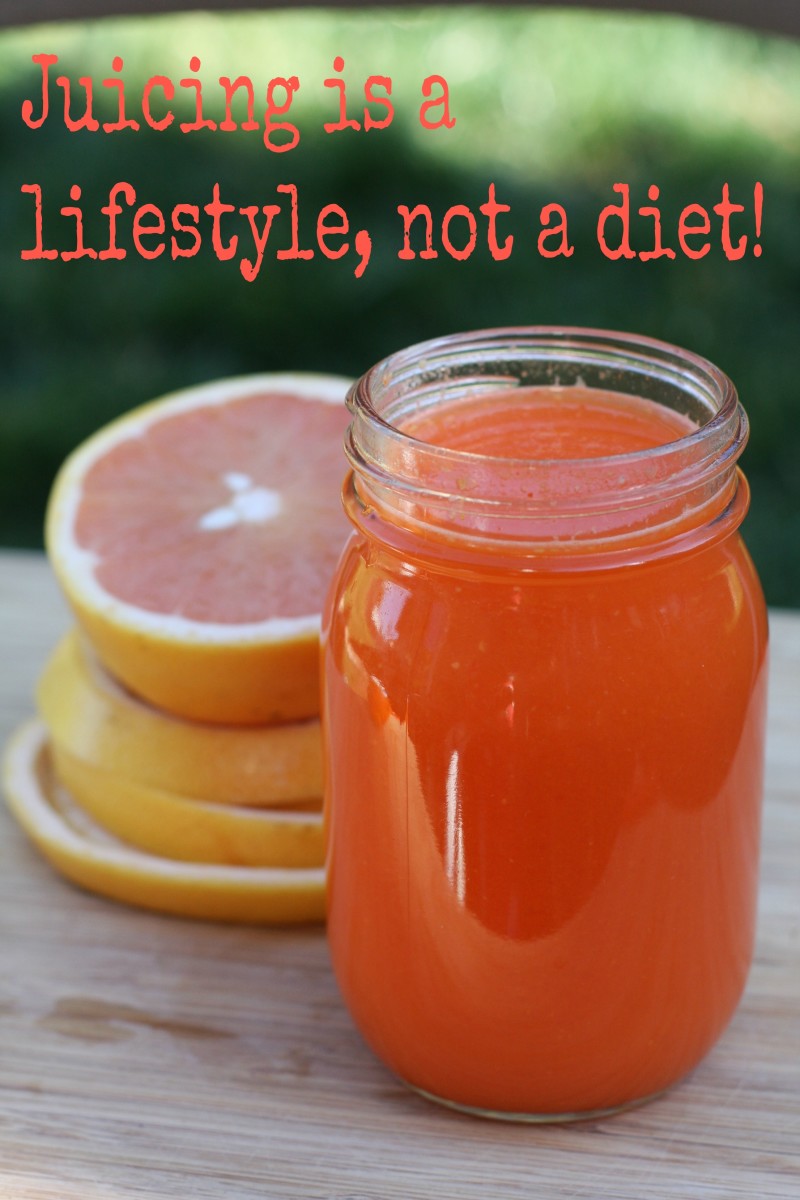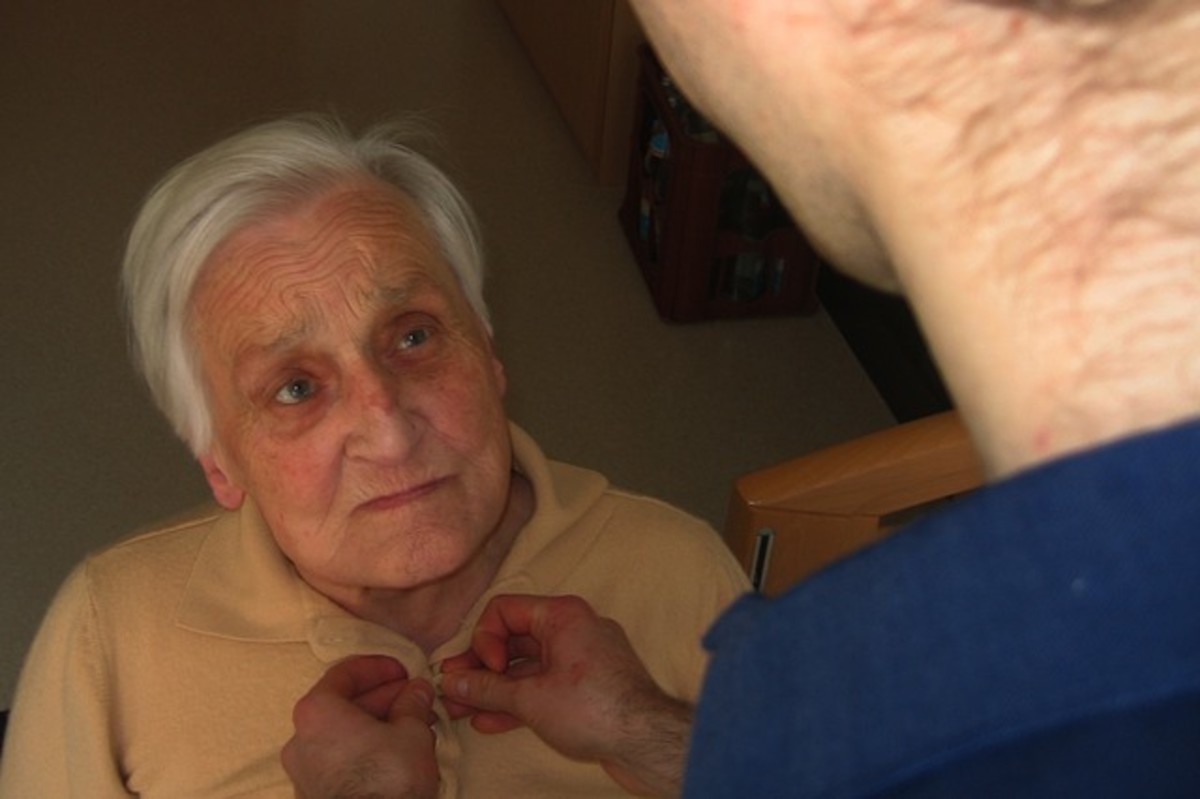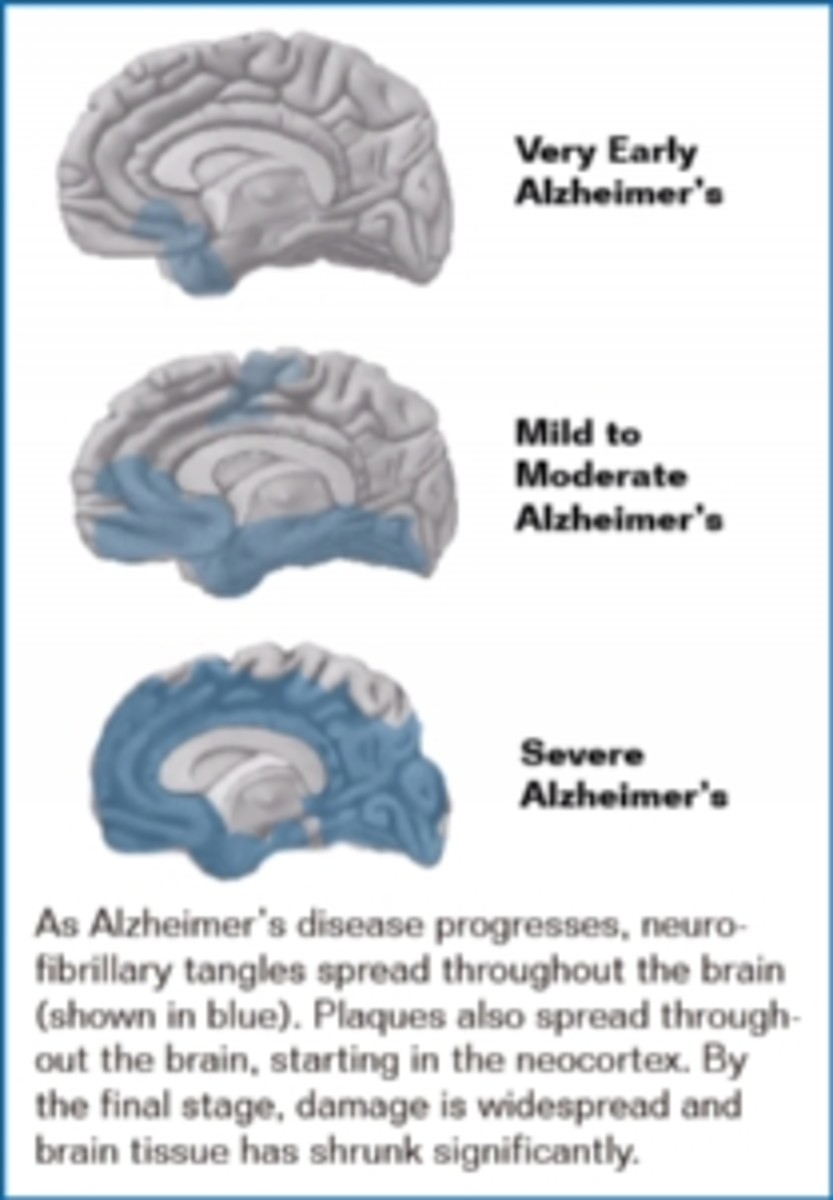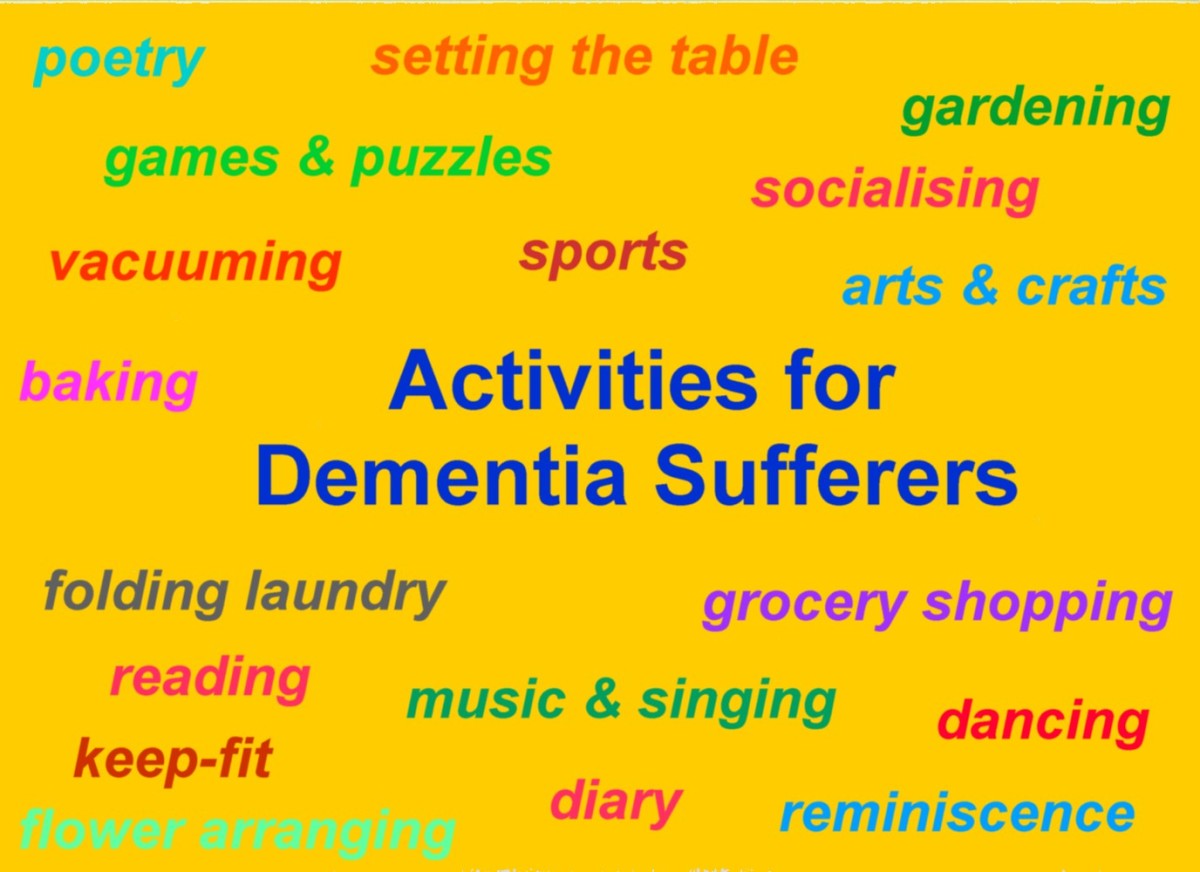Alzheimer's Disease--Prevention Tips
Alzheimer's--Background, Signs and Symptoms
Background
Alzheimer's Disease, also referred to as Alzheimer Disease, is the most pervasive form of dementia. It gets its name from a German psychiatrist Alois Alzheimer, who first identified it in 1906. Also known as AD, it is a degenerative and progressive brain disorder affecting a person's ability to effectivel function in daily life. The most well-established risk factor of Alzheimer's disease is aging: 50% of those over age 85 and 10% of those over age 65 have some form of Alzheimer's. Due to the fact that AD occurs accross generations of a family, genetic heritage is also a documented risk factor.
Signs and Symptoms
Alzheimer's disease progresses differently in different individuals. However, there are certain symptoms that are common among most sufferers. Often mistaken for the common symptoms of aging itself, the most common symptom is inability to make new memories, manifesting as difficulty in recalling recent events.
When AD is suspected, the diagnosis is usually confirmed with behavioural assessments and cognitive tests, often followed by a brain scan if available. (Full description here)
As Alzheimer's progresses, symptoms include disorientation, aggression and ill temper, mood swings, memory loss (long term) along with loss of language skills. The period of AD development can vary and be unrecognized for years in some cases. Research has shown that the average life expectancy after diagnosis of Alzheimer's is approximately seven years.
Preventing Alzheimer's--What You Can Do
Although there is no cure for Alzheimer's disease, there are certain proactive things we can do to prevent or delay its onset. The most effective of these is to make healthy lifestyle choices.
Our food choices, mental activity and physical activity are three areas we can control to prevent or reduce the effects of Alzheimer's disease.
Healthy Food and Drink Choices
Healthy food choices not only reduce the risk of illnesses like heart disease, diabetes and stroke, but they are also beneficial to the health of the brain. Scientific research indicates that long-term healthy dietary choices help maintain brain function, slow memory decline and may also mitigate the risk of Alzheimer's disease.
In particular, fruit and vegetable juices can play an important role in delaying the onset of the disease. Fresh squeezed juice three or more times a week has been shown to dramatically slow down the symptoms of Alzheimer's. Evidence shows that the polyphenols in the juices, rather than merely the vitamins, have the protective effect.
Below are some fruit juice recipes that will be a useful addition to your arsenal to stave off AD. Following that, you will see some tips on foods that will do you good.
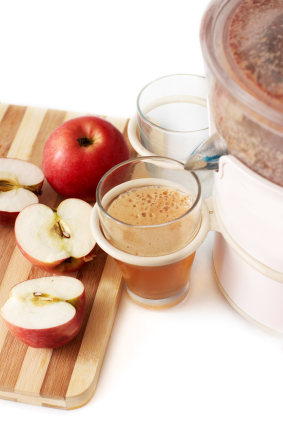
Easy Fruit Juice Recipes--Fight Alzheimer's
Apple Juice--The Memory Elixir
Studies on dementia and memory show that almost all fresh fruit juice recipes are beneficial, research by Dr. Thomas Shea spotlighted the particular effects of apple juice in its positive effects for strengthening memory.
Here is a simple great apple juice recipe to help spark your memory cells.
Ingredients
2-3 large apples, a mixture of Gala, Fuji, Red Delicious, and McIntosh is recommended.
Avoid using only one type, if possible.
Directions
- Cut apples in quarters to sixths.
- Combine and juice in a quality juicer, adding a small amount of crushed ice for drinkability. An electric blender can also be used.
To increase the antioxidant level, be sure to juice the peel. The peels and skins of fruits hold the majority of the antioxidants, so you need to be sure you use them.
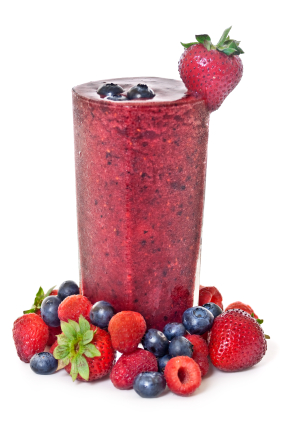
Berry Medley Smoothie
Ingredients
1 ½ cups of raspberries
2 cups of strawberries
2 cups of blueberries
Directions
- Simply wash berries thoroughly and juice. You may add ½ cup of crushed ice to aid in drinkability.
Loaded with memory-aiding antioxidants, this combination is a delight for the eyes as well as the body.
Two recommended juicers for healthy fresh juice
A Fresh Veggie Juice Idea
Cabbage and Carrot Juice Recipe
Ingredients
5 Cups Of Peeled Baby Cut Carrots
2 Cup Of Firmly Packed Raw Organic Cabbage
1 Teaspoon Of Fresh Lemon Juice
Directions
- Wash and rinse baby cut carrots and organic cabbage with cool running tap water.
- Juice combined ingredients 30- 90 seconds to get appropriate drinking consistency.
- Once your juice becomes an orange colored liquid, stir in the teaspoon of fresh lemon juice, as this will help prevent the juice from oxidizing. (Source-Heather of Boston, Massachusetts)
Note-Red cabbage contains even more nutrients for protecting against Alzheimer's disease, according to Food Science and Technology.
What To Eat: Tips to Ward Off Alzheimers
According to The Alzheimer's Association, the Mediterranean diet, rich in beans and lentils, whole grains, fish, nuts, fruits, vegetables and olives can significantly protect against Alzheimer's. The Mediterranean diet has had a lot of publicity. However, along with fruit juice recipes, a few lesser known lentil recipes will go a long way toward fortifying your health against symptoms of AD.

Lentil Recipes
Red Lentil Soup
(adapted from various popular recipes)
Ingredients
2 cups water
2 cups dry red lentils
1 teaspoon virgin olive oil
½ teaspoon curry powder
1 (28 ounce) can diced tomatoes
2 teaspoons dried basil
1 ½ cups chopped red onion
1 teaspoon ground cumin
1 ½ cups frozen chopped spinach
½ teaspoon ground cayenne pepper
salt and pepper (to taste)
garnish as desired
Directions
- Heat olive oil in a large pot over medium heat, and saute the onion until golden brown.
- Season with salt and pepper.
- Add tomatoes, spinach, and lentils.
- Pour in water. Season with basil, cumin, cayenne pepper, and curry powder.
- Bring mixture to a boil, then reduce heat to low, and simmer 25 minutes, stirring occasionally, until lentils are tender.
- Transfer the soup either to an electric or manual blender, mixing until you achieve a smooth consistency.
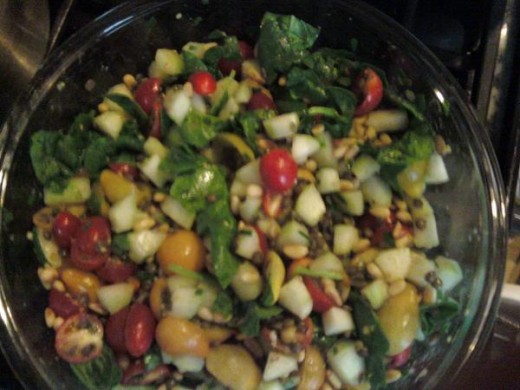
Salads- The Can't-Miss Lentil Recipe
Lentil Salads are a good way to get the health benefits of these Alzheimer-battling ingredients. There are numerous recipes available if you devote a little research. Here is one example of what a rich Lentil salad will look like. The key is to find recipes that avoid processed sauces and oils, and that are as close to vegetarian as you are able to get.
Other Great Lentil Recipes
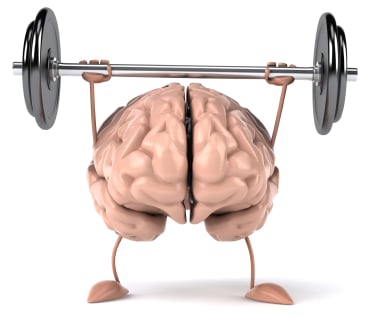
Brain Fitness Suggested Reading
Exercise Your Brain
In addition to diet, we also need to keep our brains active. Canadian researchers have found that the symptoms of dementia were delayed an average of four years among those with a lifelong use of two languages, compared to those who speak only one language.
According to studies and the Alzheimer's Association, bilingual people typically exercise a network in the brain called the executive control system more than monolingual people. This system is the basis of our ability to do complex thinking.
Bilingual people have to constantly make use of this brain system to prevent their two languages from interfering with each other. This is one example of the mental exercise that keeps their brains healthy, and staves of symptoms of memory loss and Alzheimer's.
Aside from learning a language, there are a few other concrete steps you can take to enhance the 'plasticity' of the brain, and make good use of your executive control system.
1. Learn a musical instrument. This challenges new mental pathways.
2. Make your calculations mentally (without a calculator or paper and pencil)
3. Memorize lists. Seize everyday opportunities to memorize lists of things - groceries, names, recipe ingredients, groups of people, etc. The length can be as short as 3 or 4 to begin with, but variance in complexity and length is beneficial for increasing brain health and fighting Alzheimer-related memory loss.
Physical Exercise
As commonsense as it should be by now, regular physical activity is a must for those hoping to defend against the signs and symptoms of Alzheimer's.
Regular exercise can promote the circulation of blood to the brain, which nourishes the cells with nutrients and oxygen. It may even encourage the development of new cells, thereby slowing the process of dementia.
Studies show that people who exercise regularly are also less likely to develop heart disease, diabetes and stroke, all of which are related to Alzheimer's disease risk.









